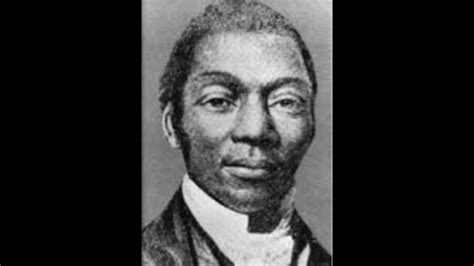A Quote by Mahatma Gandhi
If all were nonviolent, there would be no anarchy and there would be no question of anybody being armed for meeting aggression from without.
Quote Topics
Related Quotes
I myself would go for nonviolence if it was consistent, if everybody was going to be nonviolent all the time. I'd say, okay, let's get with it, we'll all be nonviolent. But I don't go along with any kind of nonviolence unless everybody's going to be nonviolent. If they make the Ku Klux Klan nonviolent, I'll be nonviolent. If they make the White Citizens Council nonviolent, I'll be nonviolent. But as long as you've got somebody else not being nonviolent, I don't want anybody coming to me talking any nonviolent talk.
We stopped the fighting in 1991 on an agreement that Iraq would take steps to assure the world that it would not engage in further aggression and that it would destroy its weapons of mass destruction. It has refused to take those steps. That refusal constitutes a breach of the armistice which renders it void and justifies resumption of the armed conflict.
Without armed struggle neither the proletariat, nor the people, nor the Communist Party would have any standing at all in China and it would be impossible for the revolution to triumph. In these years [the eighteen years since the founding of the Party] the development, consolidation and bolshevization of our Party have proceeded in the midst of revolutionary wars; without armed struggle the Communist Party would assuredly not be what it is today. Comrades throughout the Party must never forget this experience for which we have paid in blood.
The "magic if" is a tool invented by Stanislavski, the father of acting craft, is to help an actor make appropriate choices. Essentially, the "magic if" refers to the answer to the question, "What would I do if I were this character in this situation?" Note that the question is not "What would I do if I were in this situation?" What you would do may be very different from what the character would do. Your job, based on your analysis of the script, the scene, and the given circumstances regarding the who of your character, is to decide what he or she would do.
Were I to go down into the market-place, armed with the powers of witchcraft, and take a peasant by the shoulders and whisper to him, 'In your lifetime, have you known peace?' wait for his answer, shake his shoulders and transform him into his father, and ask him the same question, and transform him in his turn to his father, I would never hear the word 'Yes,' if I carried my questioning of the dead back for a thousand years. I would always hear, 'No, there was fear, there were our enemies without, our rulers within, there was prison, there was torture, there was violent death.
I was organizing a fringe meeting at the Conservative Party conference in October 1994 and I got a message that the Prime Minister would like a meeting. I went to the meeting. It was just me and John Major.What Major said to me was this: "If you were in my shoes, what would you do?". He wasn't asking me what a unionist should do, but what he should do. And I knew that I had to give him a sensible answer.
At the meeting I argued that the state had given us no alternative to violence. I said it was wrong and immoral to subject our people to armed attacks by the state without offering them some kind of alternative. I mentioned again that people on their own had taken up arms. Violence would begin whether we initiated it or not. Would it not be better to guide this violence ourselves, according to principles where we saved lives by attacking symbols of oppression, and not people? If we did not take the lead now, I said, we would soon be latecomers and followers to a movement we did not control.
The events of September 11 would have been impossible if there were no airport security system at all. If average Americans were allowed to carry their personal firearms on board our aircraft ..., the chances that several passengers on each flight would have been armed-and thus able to shoot the hijackers, preventing the Trade Center and Pentagon hits-would have been quite substantial.
My family was, I think, a bit more radical than most Mormons, especially on the question of gender. So in my mind, growing up, there wasn't ever any question of what my future would look like. I would get married when I was 17 or 18. And I would be given some corner of the farm, and my husband would put a house on it, and we would have kids.
An armed republic submits less easily to the rule of one of its citizens than a republic armed by foreign forces. Rome and Sparta were for many centuries well armed and free. The Swiss are well armed and enjoy great freedom. Among other evils caused by being disarmed, it renders you contemptible. It is not reasonable to suppose that one who is armed will obey willingly one who is unarmed; or that any unarmed man will remain safe among armed servants.








































